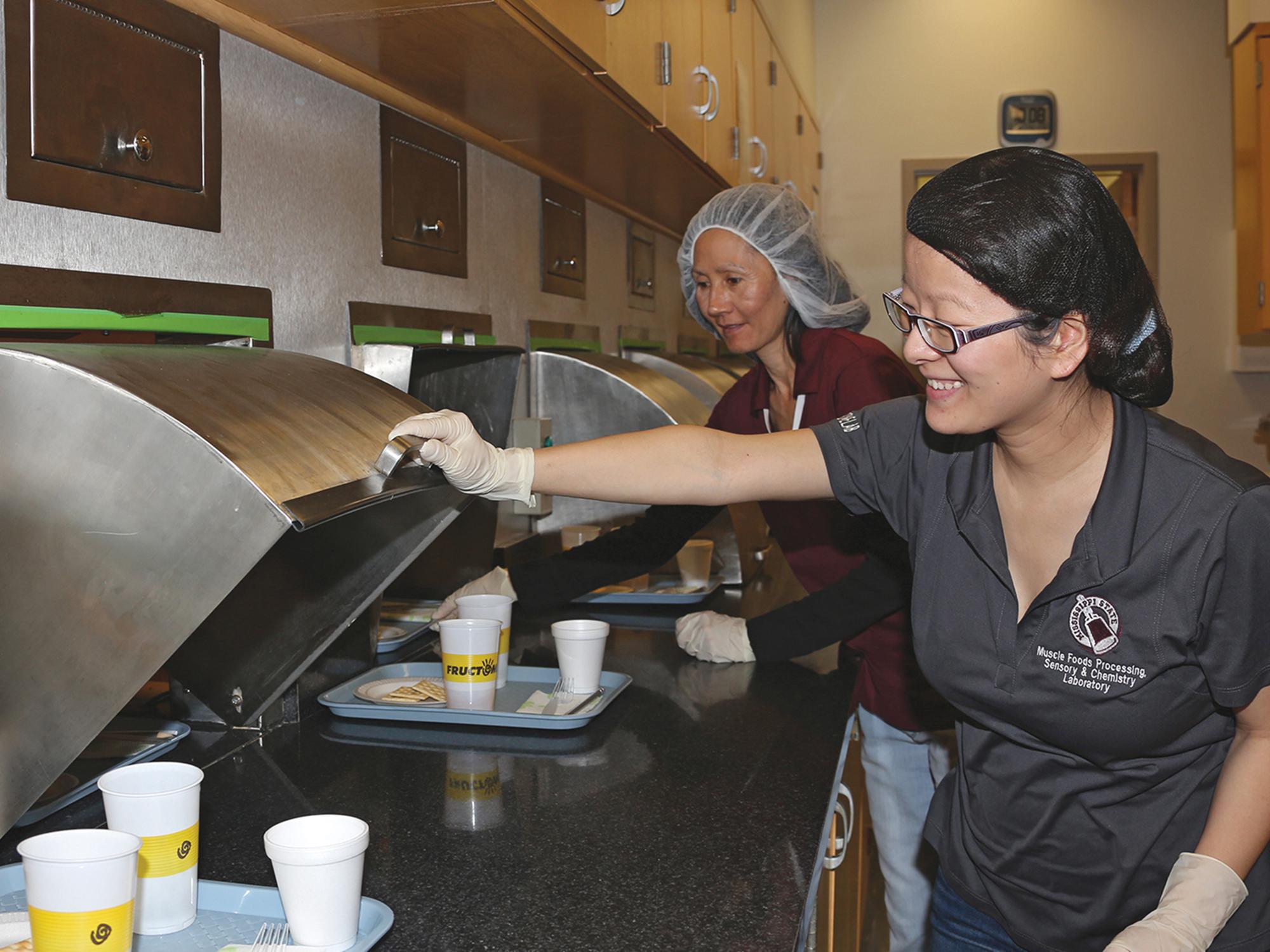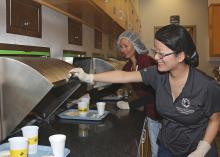Information Possibly Outdated
The information presented on this page was originally released on August 5, 2016. It may not be outdated, but please search our site for more current information. If you plan to quote or reference this information in a publication, please check with the Extension specialist or author before proceeding.
Nutrition, health promotion emphasized in outreach
STARKVILLE, Miss. -- The Department of Food Science, Nutrition and Health Promotion in the Mississippi State University College of Agriculture and Life Sciences places an emphasis on outreach that is shown through more than a dozen programs offered in conjunction with the MSU Extension Service.
Two outreach groups of particular interest to David Buys, Extension health specialist and researcher with the Mississippi Agricultural and Forestry Experiment Station, are the Master Wellness Volunteers and Junior Master Wellness Volunteers. Master Wellness Volunteers are adults who have completed specialized training in specific areas to provide service and education to their communities. Junior Master Wellness Volunteers are teens focused on community service and wellness.
In these programs, faculty members train Extension agents, who then train the volunteers. In turn, volunteers give at least 24 service hours to help their communities adopt healthy behaviors.
“We equip our Extension agents to work with members of their community to understand basics of volunteerism and the interconnectedness of individual health and community health. We empower volunteers to be agents of change in their own communities,” Buys said. “People can only make choices from choices available to them.
“It does no good to educate about food choices to people in areas where they can’t get proper nutrition, so we attempt to equip our participants to be advocates to improve things such as public transportation or sidewalks, which are closely related to health,” he said. “Improved transportation can help them gain access to the next neighborhood that may have better food options.”
Extension agents from across the state also hold health fairs each year, and Extension faculty support agents as they help their communities become healthier. Extension provides fitness equipment -- such as step platforms, strength grip dynamometers or sit-and-reach boxes -- that can be taken on-site and used as wellness education tools.
“The more equipment we can take out to communities, the better,” said Brent Fountain, an Extension associate professor of human nutrition. “Many communities in Mississippi don’t have this equipment readily available, and if we can take it to them via a health fair or to a local Extension office, we can raise awareness.”
Fountain is instrumental in Extension’s Diabetes Prevention Program, which was started by the Centers for Disease Control and Prevention and is funded through a grant from the Mississippi State Department of Health. Twenty Extension staff members are being trained with the intention of rolling out diabetes programs in 18 counties and on campus this year.
“If we can delay or prevent a person from becoming a diabetic, then that person doesn’t have to worry about a lot of things that come with the disease. Even if we can delay that by five or six years, that’s quality of life,” Fountain said. “This program looks at blood sugar and weight. We have a small, focused group of participants that gets together an hour a week for 16 weeks and then once a month for the next six months.
“We provide education through our curriculum, but a lot of times the answers, conclusions, results and strategies are discussed around the table,” he said. “This creates an idea of vested interest and trust. If the participants are hearing suggestions from people they know, they can develop a plan from the best ideas that will work for them.”
Another recent project that combined Extension with research was a “couch-to-5K” program funded by the College of Agriculture and Life Sciences. Fountain coordinated the program, which takes untrained individuals through a nine-week training regimen and culminates when participants run a 5K race. Fountain is currently doing the final analysis of the participants’ progress to determine how much the process improves lung function and body composition.
“A lot of people look at weight as the measure of success,” he added. “We want to see if there are other measures of success, beyond weight, that can motivate a person to begin or continue an exercise program.”
Other Extension programs in the department include the Expanded Food and Nutrition Education Program (EFNEP), the Family Nutrition Program, the Food Preservation Program, Rural Medical Scholars, ServSafe and the Healthy Homes Initiative.
EFNEP helps families with limited resources improve nutrition, health and economic status. The Family Nutrition Program helps improve quality of life through increasing knowledge of food and nutrition, as well as food purchases. The Rural Medical Scholars program is a five-week summer academic and experiential opportunity for high school students between their junior and senior years to learn more about careers as family practice physicians.
The ServSafe food safety training program provides current and comprehensive educational materials to the restaurant industry. It has certified more than 4 million food service professionals through its Food Protection Manager Certification Exam, which is accredited by the American National Standards Institute Conference for Food Protection. The Healthy Homes Initiative’s goal is to educate Mississippians about the connection between indoor environments and their health and to empower them to keep their homes safe and healthy.
Will Evans, head of the Department of Food Science, Nutrition and Health Promotion, said all of these programs have made a positive difference for Mississippians, and the department will continue pursuing effective health solutions for the underserved.
“I think Mississippi State and the Department of Food Science, Nutrition and Health Promotion should lead the effort to help get healthy, Mississippi-grown foods to consumers and educate them about diet, cooking and consumption,” Evans said.





